CarEdge saved me over 4,500 dollars on a brand new Honda Pilot. I can't say thank you enough.
Price intelligence
Find a wide range of vehicle listings with market insights on new and used listings near you.


Help us personalize your CarEdge experience — it only takes a second.
Your answers help us personalize your CarEdge journey — we’ll follow up with tips and next steps that match your buying timeline.
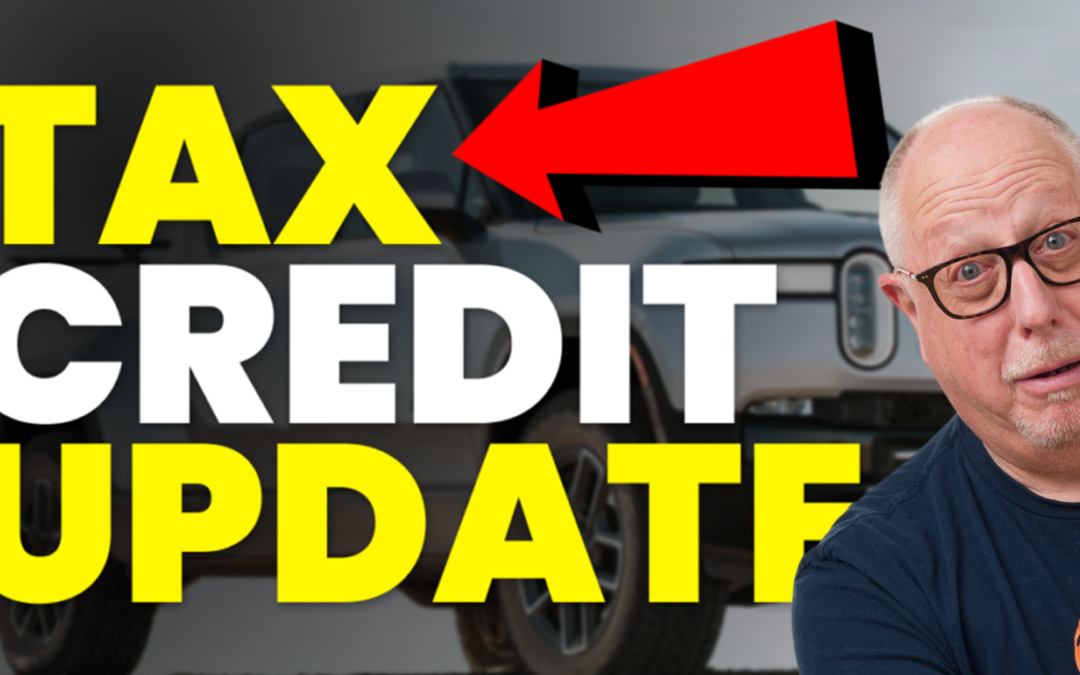
For those considering taking the plunge into the world of electric vehicles in 2025, there’s exciting news. The U.S. government has now clarified how car dealers can transfer tax credits for new and used EVs directly at the point of sale, ensuring you can benefit instantly from these incentives. But there’s a catch: dealers need to be registered. It’s an encouraging that more than 7,000 dealers have signed up, but thousands of others have yet to do the necessary work. Let’s delve into what this means for you.
Car dealerships across the country now have definitive guidelines on how tax credits for EVs can be handed over to the consumer at the point of sale. Previously, there were doubts about how swiftly dealers would be reimbursed by the federal government after passing the EV tax credit on to the buyer at the point of sale. The latest guidance is good news for EV buyers, but there’s a new item for your car buying checklist.
First, a quick reminder of how we got here.
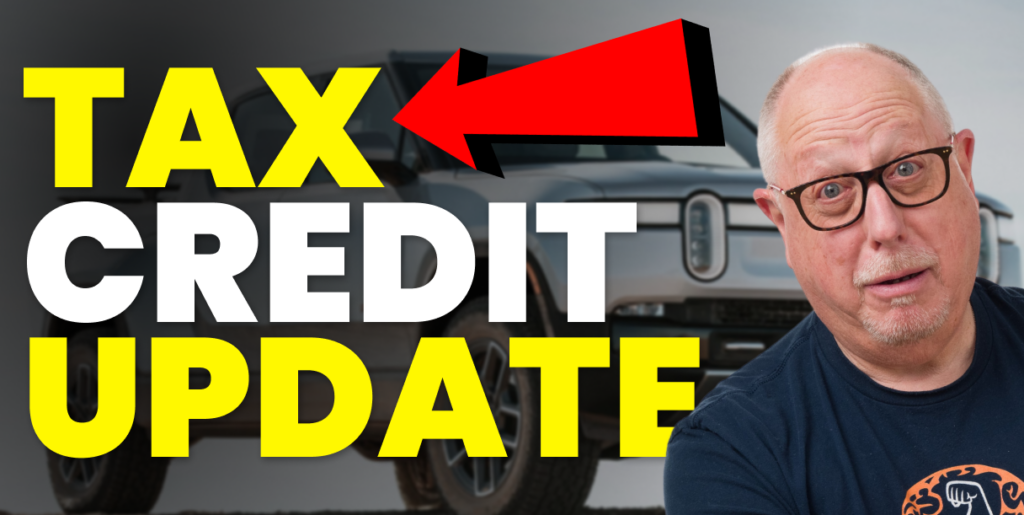
In late 2022, the Inflation Reduction Act was passed into law here in the United States. The IRA brought back the federal EV tax credit for automakers like Tesla and General Motors, but took it away from Hyundai, Kia, Audi, and many others.
Why did the EV tax credit get taken away? The new rules are complex, but in summary, an electric vehicle must be made in North America, and fall under new price caps, in order to qualify. There are also battery sourcing requirements.
See exactly which EVs qualify, and the IRS income and eligibility guidance.
For all of 2023, the EV tax credit was just that, a non-refundable tax credit. Starting January 1, 2024, the EV tax credit became redeemable at the point of sale. In other words, you can take your federal incentive as a cash discount when you buy your car at the dealership.
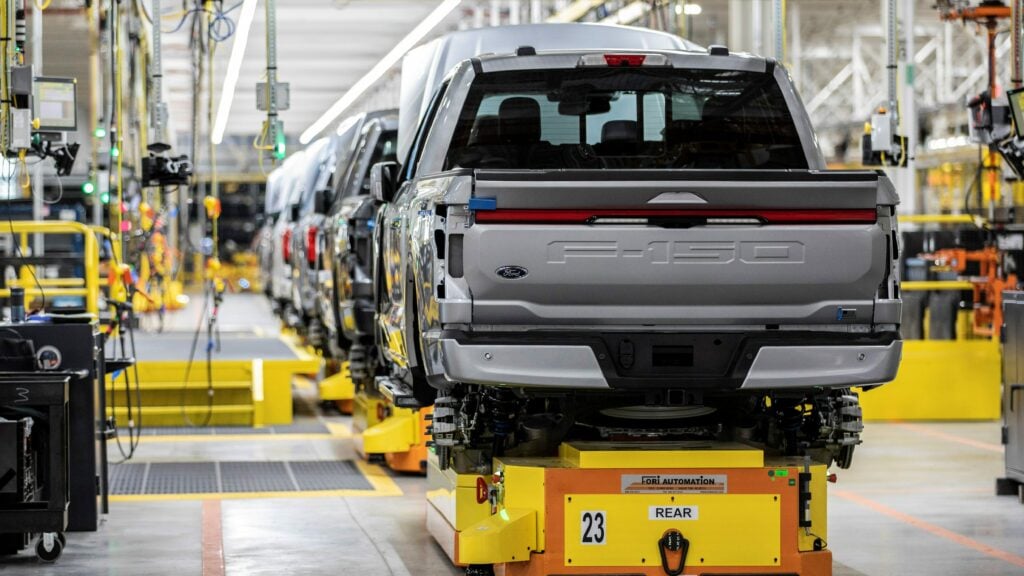
Previously, car dealers were nervous about how this EV incentive could play out. They remember the mess caused by poor planning during the Cash For Clunkers initiative years ago, and feared a repeat. That’s why dealers welcomed the news that the IRS will reimburse them within 72 hours.
For dealers, this is a game-changer. As Juan Alarcon, president of Car Pro Automotive Group, jubilantly told Automotive News, “Three days is great news.” But, he quickly adds a note of caution, “if they can pull it off.”
For these instant credits to materialize for buyers, dealers have a role to play. Your dealer must be registered on a new platform, IRS Energy Credits Online, in order for you to receive a point-of-sale EV tax credit.
This platform is the hub where dealers not only register but also electronically relay EV sales data to the IRS, receive payments for transferred credits, and file time-of-sale reports.
Once a credit is transferred at the point of sale, dealers have the option to slash the purchase price or hand cash over to the buyer. But remember, the amount has to be the full value of the available credit for the qualifying EV. Buyers will have to sign a statement under penalty of perjury that they understand the eligibility requirements for the EV tax credit, and will have to pay it back if they exceed the EV tax credit’s income limits for the year.
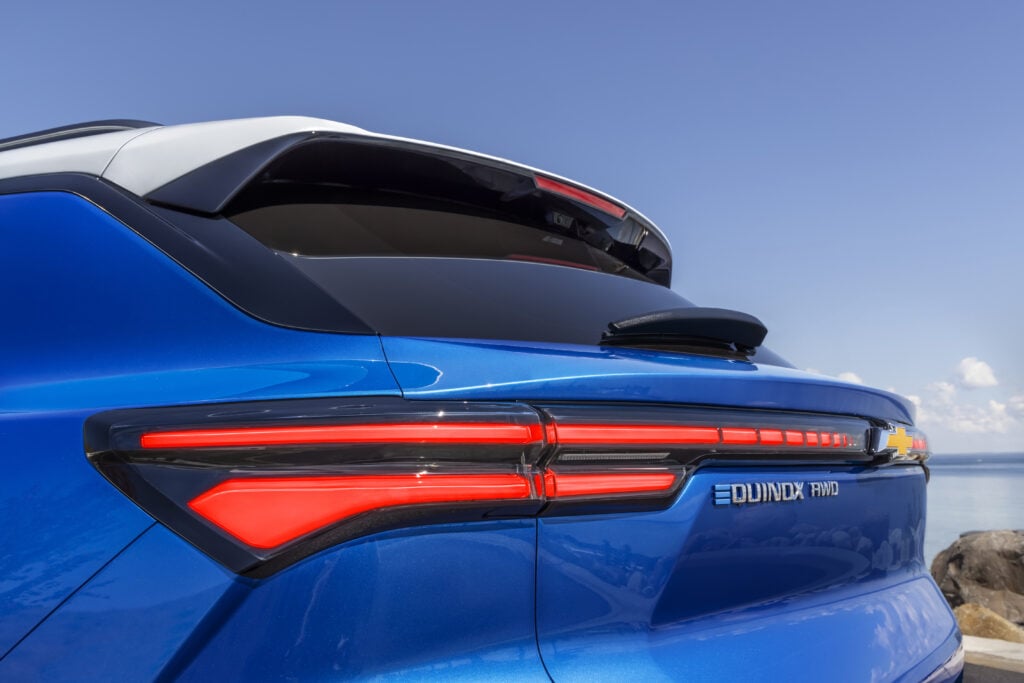
Finally, after a decade of asking for a point-of-sale tax credit, it’s finally here. However, if you’re buying from a car dealership, you need to check if they’ve registered with the new ‘IRS Credits Online’ system once it’s available.
If you sense any confusion or uncertainty, you can email them this article for further information. Remember, your car dealer must be registered before you can receive the EV tax credit at the point of sale.
Learn more about our car buying services. We’re simply here to help!

Purchasing a used car can be a smart financial decision, but it also comes with its own set of uncertainties and risks. Unlike new cars that come straight from the factory, a used vehicle has a history. To ensure you’re making an informed decision and getting the best value for your money, it’s essential to ask the seller some important questions. We’ve compiled a list of crucial questions you should ask when buying a used car. These questions will not only provide insights into the car’s history and condition but will also help you negotiate a fair price.
Our team of Car Coaches shared these critical questions for used car buyers. We especially want to thank Jerry from the CarEdge team for his insights!
We’ve listed the questions in order of importance. More important questions are listed first for each section. Of course, it’s best if you can get answers to all of these. No matter what, get a pre-purchase inspection!
It always pays to be an informed shopper. Here are some reader favorites that you can use to save more and stress less.
Used Car Price Trends (Updated Weekly)
Free Guides to Used Car Buying
Join the CarEdge Community to connect with likeminded bargain hunters. You can also see crowdsourced car deal reviews, and contribute your own!
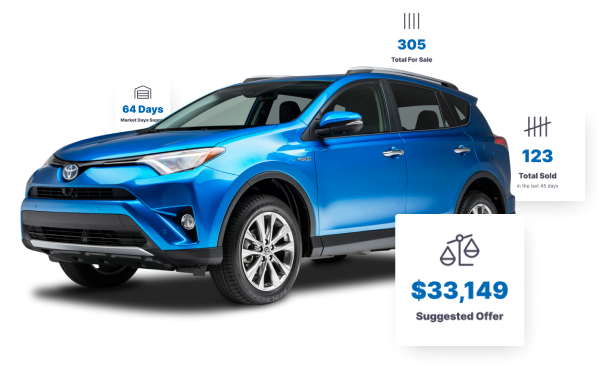
Purchasing a used car requires thorough research and due diligence. By asking these questions, you’re taking the right steps toward ensuring that your next vehicle is a reliable ride, and not a financial and mechanical burden.
Remember, transparency is key. If a seller hesitates or refuses to answer any of these questions, consider it a red flag.
Looking for help with buying a car? The CarEdge Team is ready to assist. From free resources to 1:1 car buying help, we’ve got you covered.
Check out these CarEdge success stories to see how much drivers are saving today.
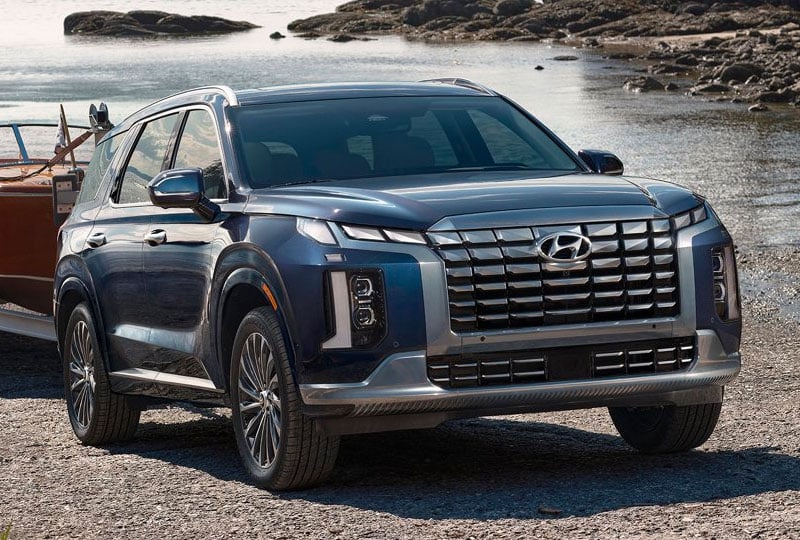
Why is leasing a car such an attractive option right now? The average auto loan rate has eclipsed 9%, adding serious money to monthly payments for those who decide to buy. Leasing not only holds monthly costs down, it offers an avenue for drivers to always have the latest and greatest cars. This month, Hyundai lease deals represent some of the best offers in the car market. Let’s take a look at Hyundai’s top lease offerings, from sedans and SUVs to the brand’s popular EVs.
All leases are for 36-month contracts.
Hyundai Elantra: $219 per month with $3,499 due

The Elantra epitomizes efficiency with its comfortable seating and advanced safety features. Its sleek design paired with a robust engine delivers both aesthetics and performance. The Elantra achieves 42 miles per gallon on the highway, yet is powered by 201 horsepower. Plus, an Elantra Hybrid is available without breaking the bank.
There’s currently a 43-day supply of new Elantra’s nationwide, which is below average. This indicates less negotiability when buying, making leasing a more attractive option.
Browse Elantra listings with local market price data.
Hyundai Sonata: $289 per month with $3,499 due

Sonata offers a more spacious interior, and cutting-edge infotainment system. If the Elantra didn’t quite cut it for you, chances are the Sonata just might be what you’re looking for. With impressive fuel efficiency (up to 37 miles per gallon), it is ideal for daily commuting and long drives alike. A more efficient Sonata Hybrid is now on the market too.
There’s currently a 76-day supply of new Sonata’s nationwide, which is above the market average. This means buyers will have more negotiability, but also that manufacturers will have willingness to lease on competitive terms.
Browse Sonata listings with local market price data.
Hyundai IONIQ 6: $349 per month with $4,999 due
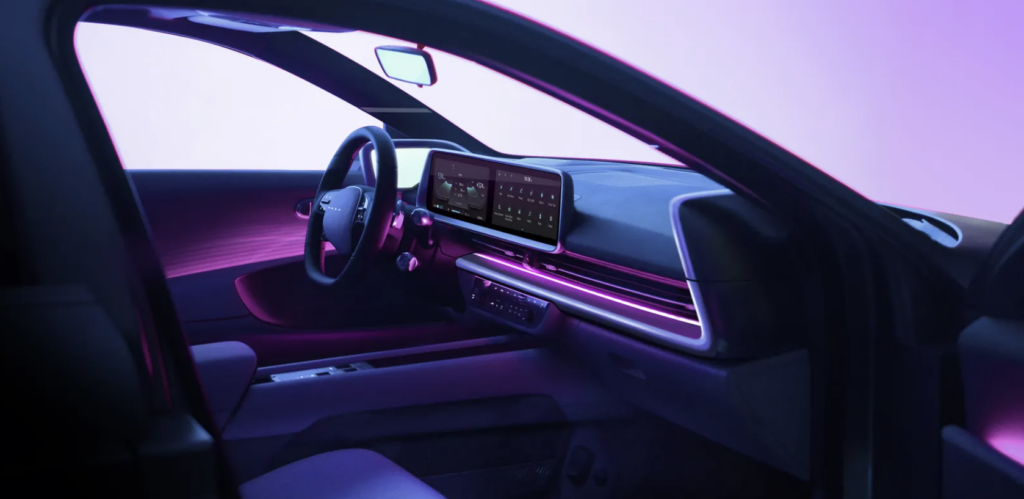
The IONIQ 6 lease now comes with a $7,500 lease discount. Hyundai launched this incentive to make up for the loss of the federal EV tax credit earlier this year. The IONIQ 6 ties the Tesla Model 3 for the title of most capable electric sedan under $50,000. With up to 361 miles of range and fast charging times that beat Tesla, you can’t go wrong. It’s laden with innovative technology, and a smoother ride than you’ll find in the Model 3.
There’s currently an 83-day supply of IONIQ 6’s nationwide, which is well above the market average. This means buyers will have more negotiability, but also that manufacturers will have willingness to lease on competitive terms.
Browse IONIQ 6 listings with local market price data.
Hyundai Venue: $209 per month with $3,499 due

The Hyundai Venue is the most affordable SUV in America. This petite model is the definition of a compact SUV, but that’s not necessarily a bad thing. Drivers report that it’s perfect for city driving, and offers tremendous value for such a low price (MSRP starts under $20,000). With advanced safety features, it provides a secure and enjoyable driving experience.
There’s currently a 37-day supply of new Venue’s nationwide, which is well below average. This indicates less negotiability when buying, making leasing a more attractive option.
Browse Venue listings with local market data.
Hyundai Kona: $292 per month with $4,012 due

The Kona is completely redesigned for the 2024 model year, but not everyone will agree that it looks better. The Kona is the next step up from the Venue in terms of size and features. This small SUV provides ample cargo space for most needs, making it suitable for both adventures and daily errands.
The Kona’s fuel economy is rated at 29 MPG in the city and 34 MPG on the highway, but add all-wheel drive and those numbers drop to 24 in the city and 29 on the highway. A fully-electric Kona is available, but it’s overpriced. For the same cost, you could buy or lease a faster-charging, longer-range Tesla Model 3 or Volkswagen ID.4.
There’s currently an 88-day supply of Kona’s nationwide, which is well above the market average. This means buyers will have more negotiability, but also that manufacturers will have willingness to lease on competitive terms. This is likely due to the impressive value that Hyundai’s other SUV models offer for a similar price.
Browse Kona listings with local market data.
Hyundai Santa Fe: $269 per month with $3,999 due

Last call for the Santa Fe before it undergoes a polarizing update! These relatively normal looks will be gone in a few months.
The Santa Fe is the real deal for those wanting a true SUV. Including 72 square feet of cargo area with the seats down, this is a capable family vehicle at a budget-friendly price. With 26 miles per gallon in combined city/highway driving, it’s not exactly fuel efficient. All-wheel drive lowers that even further.
The Santa Fe is the third-highest ranked Hyundai model in terms of reliability. See the most reliable car brands, as ranked by Consumer Reports. Hyundai has some work to do!
There’s currently a 59-day supply of new Santa Fe’s nationwide, which is about average in today’s car market. This indicates fair negotiability when buying, but leasing is still a good option.
Browse Santa Fe listings with local market data.
Hyundai Tucson: $331 per month with $4,011 due
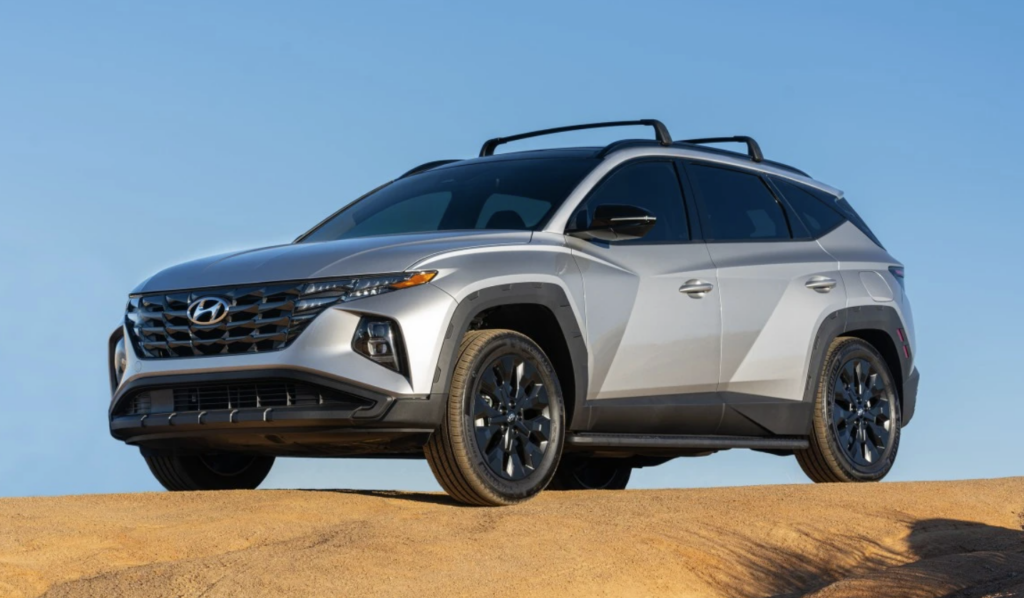
The Tucson captivates with its bold design and advanced tech features. Despite appearing slightly smaller than the Santa Fe, the Tucson actually has a bit more cargo space. It also gets better fuel economy, at 26 MPG city and 33 MPG highway. Its efficient powertrain and safety features make it a top choice for families.
There’s currently a 64-day supply of new Hyundai Tucson’s nationwide, which is about average in today’s car market. Leasing is still a good option, but offers may become even more competitive next month.
Browse Tucson listings with local market data.
Hyundai Palisade: $395 per month with $3,999 due

Since launching in 2018, the Palisade has quickly gained a large fanbase. For those wanting a larger SUV without having to go the way of the Chevy Tahoe or Ford Explorer, the Palisade and Kia’s Telluride are the perfect fit. Palisade offers a luxurious driving experience with its high-end interior materials and spacious three-row seating. Its robust V6 engine ensures power on the road.
When it comes to value for the money, leasing the Palisade for less than $400/month is amazing.
There’s currently a 74-day supply of new Hyundai Palisade’s nationwide, which is about average in today’s car market. Leasing is still a good option.
Browse Palisade listings with local market data.
Hyundai IONIQ 5: $399 per month with $4,999 due
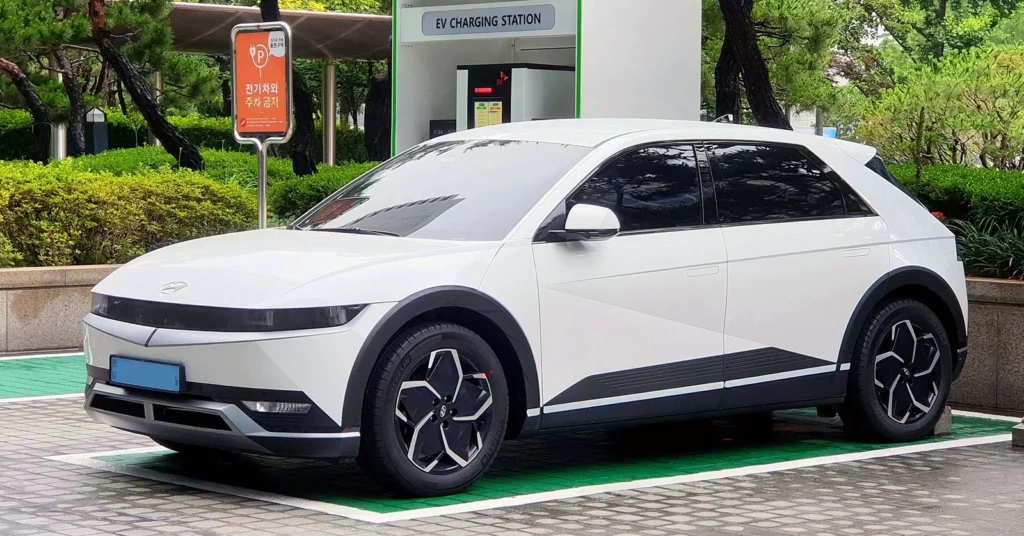
IONIQ 5 is a vision of the future, with its unique design and advanced electric powertrain. Nothing looks quite like it on the road, but there’s more to this EV than sharp looks.
With 303 miles of range (266 miles with all-wheel drive) and ultra-fast charge times, the IONIQ 5 is an award-winning vehicle worth a test drive. The only reason it’s not a top-seller? The IONIQ 5 does not qualify for the federal EV tax credit. Hyundai is offering a workaround by including a $7,500 discount on IONIQ 5 leases. That’s a sweet deal!
There’s currently a 102-day supply of IONIQ 5’s nationwide, which is well above the market average. This means buyers will have more negotiability, but also that manufacturers will have willingness to lease on competitive terms.
Browse IONIQ 5 listings with local market data.
Hyundai Santa Cruz: $331 per month with $3,699 due
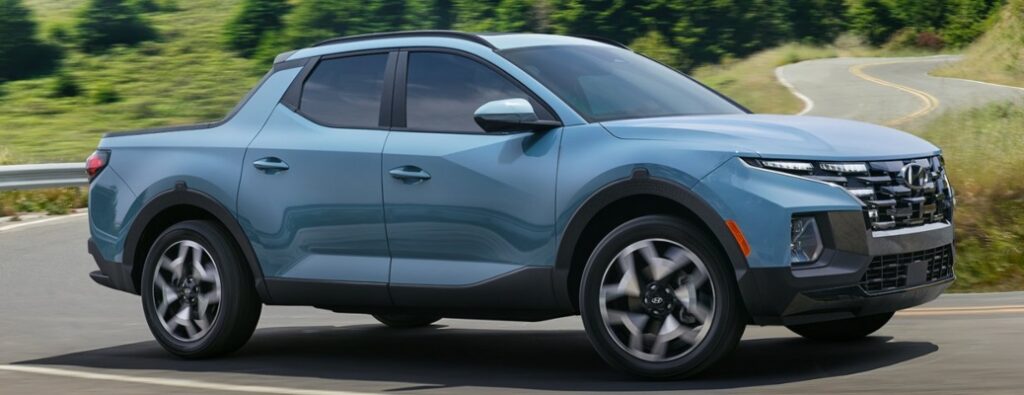
The Santa Cruz is characterized by its versatile utility, functioning as both an SUV and a pickup. Hyundai calls it a Sport Adventure Vehicle. Tow up to 5,000 pounds with HTRAC all-wheel drive. On the downside, the bed is just 48 inches long with the tailgate up.
There’s currently a 88-day supply of Santa Cruz’s nationwide, which is well above the market average. This means buyers will have more negotiability, but also that manufacturers will have willingness to lease on competitive terms. I suspect that many buyers opt for either an SUV OR a truck, not something that’s oddly in between.
Browse Santa Cruz listings with local market data.
Leasing is simple on the surface, but to secure the best deal, it’s important to be familiar with the contract you’re about to sign. Our team of Car Coaches created this resource to help you take control of your deal:
Understanding Your Auto Lease Contract: A Comprehensive Guide
Hyundai does have attractive lease offers, but so do some of the competition.
Check out the best lease offers from every automaker this month.
Looking for help with your car deal? Our team is ready to assist! With expert advice and personalized guidance, we ensure you not only get the best deal, but one that you’ll be proud of. Reach out to a CarEdge Coach today, and let’s find your next car at a price you can afford!!

Once a brand synonymous with budget-friendly options, Kia has been striving to shed its old image and emerge as a reputable name in the automobile industry. But how do Kia’s latest cars and SUVs fare in terms of dependability? How reliable are Kia cars and SUVs today? If you’re thinking about purchasing a Kia, we’ve got data you’ll want to see.
Kia’s dedication to quality has not gone unnoticed. In 2024, Kia proudly stands within the top 10 of the most reliable car brands, as ranked by Consumer Reports. Let’s see how Kia’s reliability score measures up against its competitors:
Lexus – 79
Toyota – 72
MINI – 71
Acura – 70
Honda – 70
Subaru – 69
Mazda – 67
Porsche – 66
BMW – 64
Kia – 61 (Down one spot from the previous year, but with a higher score)
This list of the top 10 most reliable brands has gone through quite the shuffle in recent years. Brands like BMW and Kia have entered the top 10, while others like Lincoln and Audi were kicked off.
So, is Kia a reliable brand in 2024? Considering the latest rankings and reviews from Consumer Reports, the answer is a resounding yes.
How does Consumer Reports determine their reliability rankings? Here’s how they explain their methodology:
“Every year, CR asks its members about problems they’ve had with their vehicles in the previous 12 months. This year, we gathered data on over 300,000 vehicles, from the 2000 to 2024 model years (with a few early-introduced 2024model years), that address 17 trouble areas, including engine, transmission, in-car electronics, and more. We use that information to give reliability ratings for every major mainstream model.”
There you have it. This robust methodology is why consumers put so much trust in the Consumer Reports rankings and reviews. This makes it even more noteworthy that Kia has joined the top 10 most reliable car brands.
Next, we’ll take a look at the most reliable Kia models.
Consumer Reports tested nine Kia models, and there was a wide range of reliability scores among them. From the terribly rated Sorento to the superb Sportage and Carnival, it’s clear that Kia still has some work to do to bring the entire model lineup into the top rankings.
The most reliable Kia models include the Sportage, Carnival and Forte. The K5 and popular Telluride are not far behind.
Here’s how the nine Kia models CR tested were most recently rated:

The Sportage PHEV, Carnival and Forte may be the most reliable Kia models, but how do the top sellers fare? Here are the reliability rankings of the best-selling models. A few of the most reliable models are also the most popular!
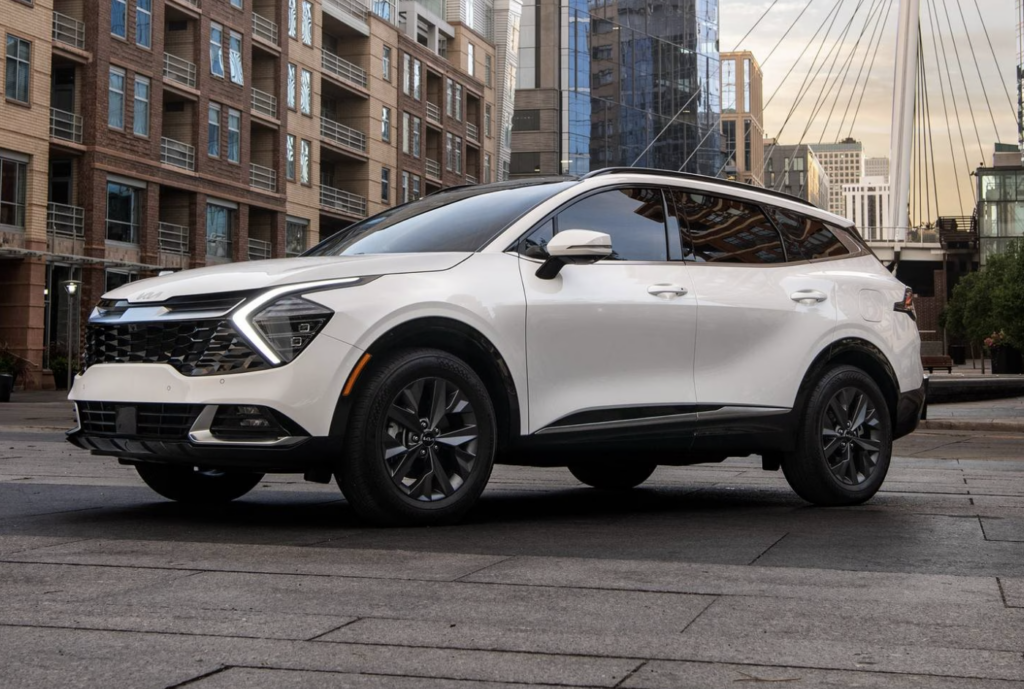
Base Price: $26,290
Top Spec Price: $43,190
MPG: City 17 / Hwy 34 / Combined 25 miles per gallon
Consumer Reports Reliability Score: 60

You’ve probably noticed the redesigned Sportage’s spaceship-like front fascia over the past year. Most drivers would agree that it looks good, and is a pleasure to own. Consumer Reports says that The hybrid Sportage is the one to go for because it is “quicker, quieter, and gets 36 mpg overall.” Sounds like a winner for this price point.
When it comes to reliability, the Sportage ranks slightly above average for the brand with an overall score of 60.
Browse Kia Sportage listings with local market data.
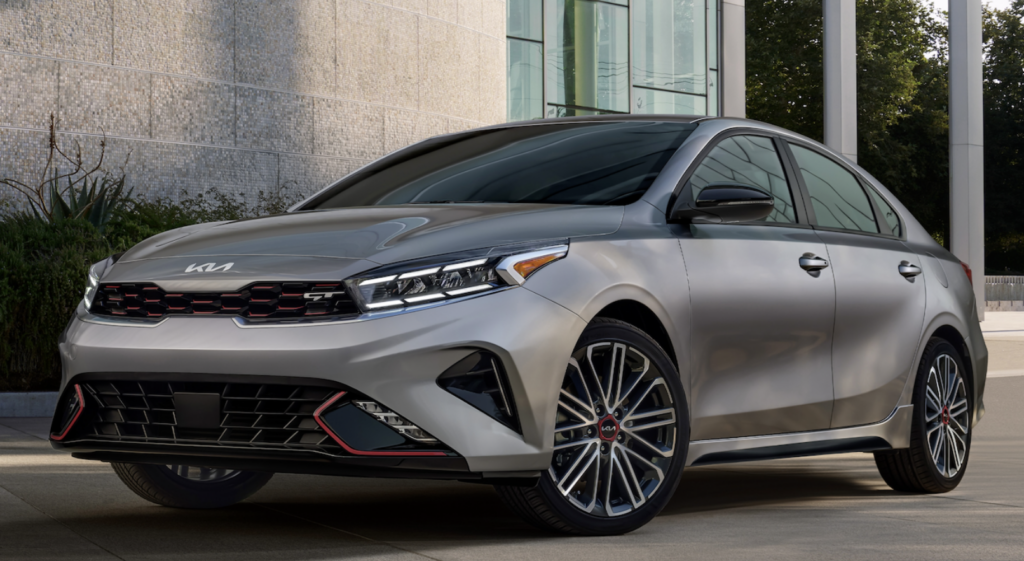
Base Price: $19,690
Top Spec Price: $25,090
MPG: City 31 / Hwy 41 / Combined 35 miles per gallon
Consumer Reports Reliability Score: 44

In 2023, there are just a handful of new cars priced under $20,000. The Kia Forte still makes the list, just barely. This compact car has some redeeming features, such as impressive fuel economy. However, it has a stiff suspension that is noticeable on any road surface, and a loud cabin with lots of road noise. At this price, it’s still not bad for getting around town.
Browse Kia Forte listings with local market data.
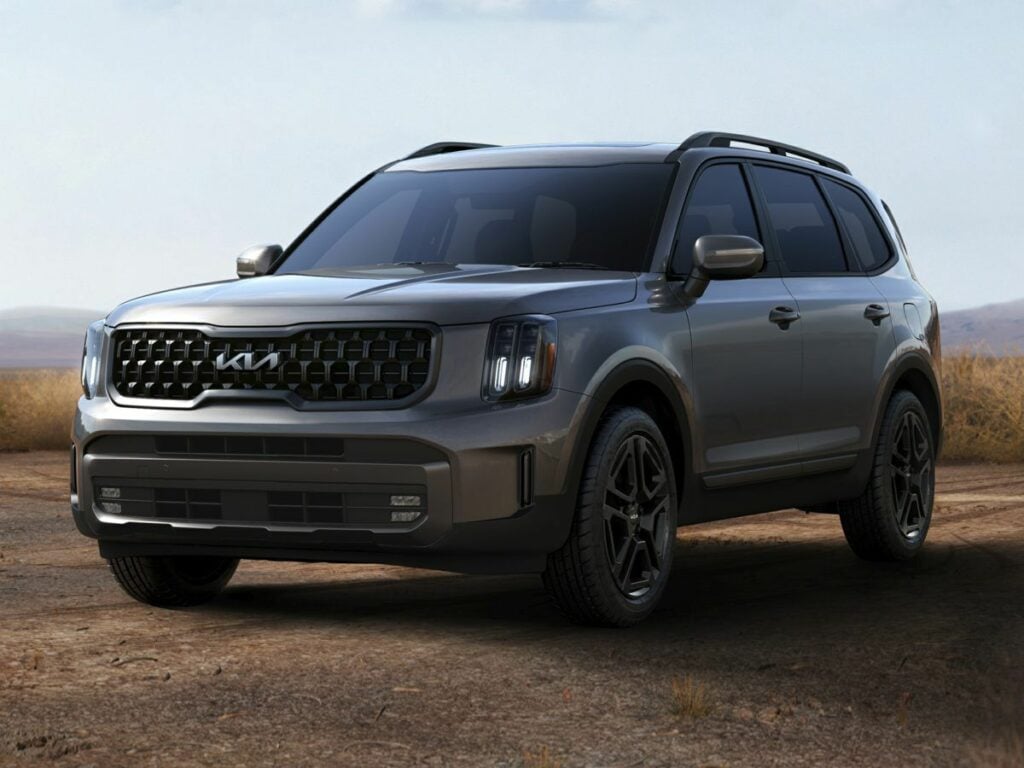
Base Price: $35,890
Top Spec Price: $52,985
MPG: City 14 / Hwy 30 / Combined 21 miles per gallon
Consumer Reports Reliability Score: 59

In just a few years, the Kia Telluride has gone from a market newcomer to one of the top selling SUVs out there. There’s no doubt about it: the Telluride offers amazing value for the price. With seating for up to 8 passengers and a well-equipped 291-hp, 3.8-liter V6 engine, there’s a lot to love. Regarding the Kia Telluride’s reliability, it scored just above average in Consumer Report’s testing and member surveys.
Browse Kia Telluride listings with local market data.
According to our CarEdge Maintenance Cost Rankings, Kia ranks #7 in the least expensive brands to maintain after 5 years. That’s in the top quarter of the 42 car brands sold in the U.S.
On average, the 5-year cost to maintain a Kia is $2,167. That’s $500 more than Toyota, about $100 more than Honda, and nearly $100 less than Kia’s sibling Hyundai.
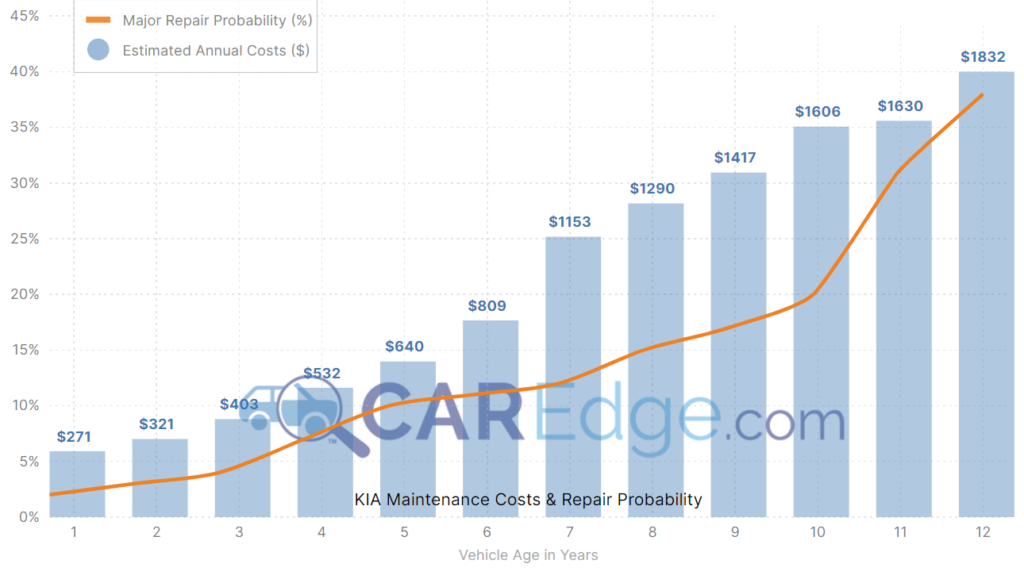
KIA models average around $8,442 for maintenance and repair costs during their first 10 years of service. That’s because more frequent and costly maintenance is typically required between 5 and 10 years of operation. This is more than the industry average for popular brands by $1,628.
There is also a 19.92% chance that a KIA will require a major repair during that time. This is 0.58% better when compared to the other auto manufacturers in this segment that we have studied.
See the complete breakdown of Kia’s cost of ownership expenses and Kia maintenance costs.
Kia’s transformation from a budget-friendly brand to a name that resonates with reliability is commendable. With continual improvements and a keen eye on quality, Kia is steadily carving a niche for itself in the automobile industry. As you contemplate your next vehicle purchase, Kia certainly deserves consideration.
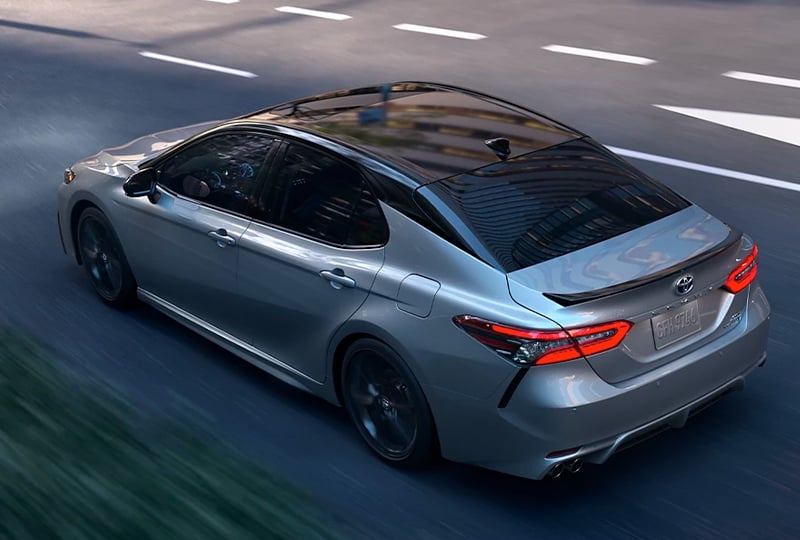
Nationwide, Toyota has 39 days of inventory. It’s true that Toyota models are some of the fastest selling cars on the market today, but this is actually an improvement. One month ago, Toyota was stuck with just a 30-day supply of new cars. More inventory means more negotiability, and Toyota has introduced some pretty tempting finance and lease deals. Let’s take a look at Toyota’s inventory this month, and the best Toyota special offers right now.
New inventory for 2023 and 2024 Toyota models is increasing after a rough summer for the much-loved automaker. The following Toyota models all have higher inventory levels today than they did one month ago:
Toyota’s rising inventory is good news for car buyers, but the brand continues to have a tighter inventory than most automakers in America. Here are the five OEMs with the lowest new car inventory today. Car market inventory is commonly measured with market day supply. Market Day Supply (MDS) represents the number of days it would take to sell the current inventory at the present sales rate, assuming no new inventory is added.
You guessed it! Toyota is on the list:
| Brand | Inventory Days Supply |
|---|---|
| Honda | 34 |
| Kia | 37 |
| Toyota | 39 |
| Lexus | 56 |
| Subaru | 63 |
| Market Average | 74 |
As we approach the end of the year, Toyota is clearly more eager to sell vehicles as 2024 model year vehicles arrive on dealer lots. Rising inventory only adds to the urgency for Toyota dealers.
Right now, Toyota is offering competitive APRs in this high-interest auto finance market. These are Toyota’s special offers this month.

3.99% APR for 48 months
Offer applies to all trims, but excludes Camry Hybrids. The Camry Hybrid offer is currently 4.99% APR for 48 months. See details and regional offers at Toyota.com.
Browse Camry listings with local market data.
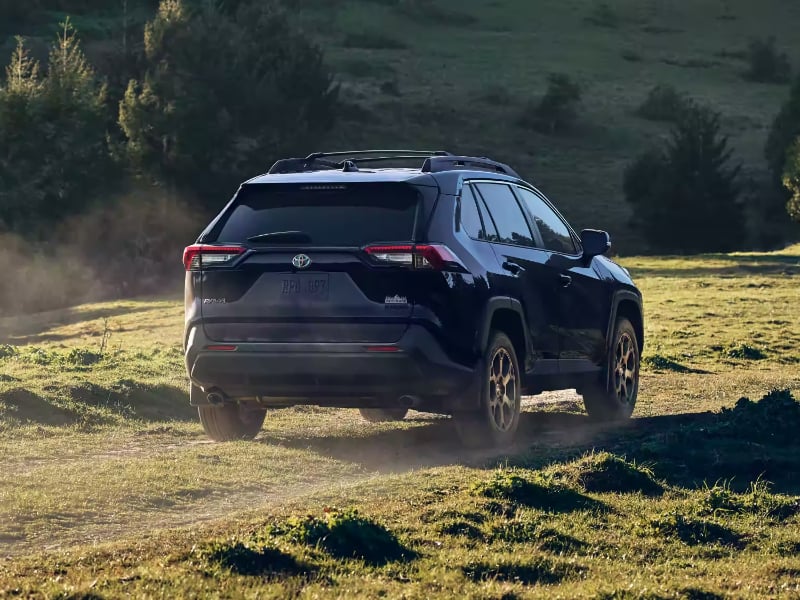
3.99% APR for 48 months
Offer applies to all trims, but excludes RAV4 Hybrids. The RAV4 Hybrid offer is currently 4.99% APR for 48 months. There are no offers advertised for the RAV4 Prime. See details and regional offers at Toyota.com.
Browse RAV4 listings with local market data.
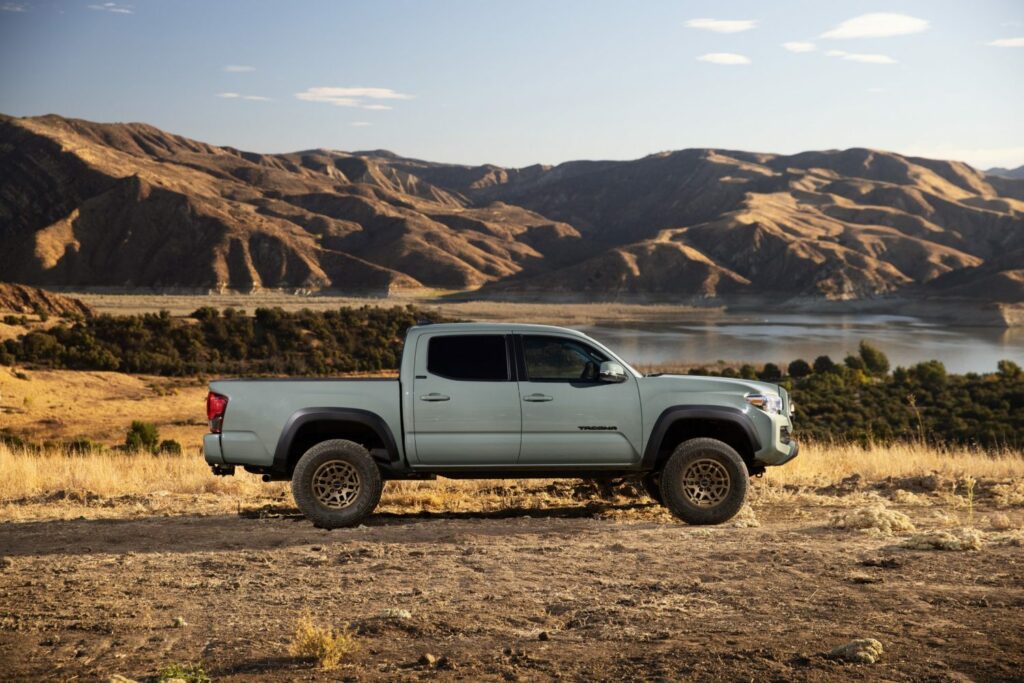
2.99% APR for 60 months
Offer applies only to 4×2 models, and applies to 13 trim options. Be sure to check the details at Toyota.com.
Browse Tacoma listings with local market data.

3.99% APR for 48 months
This offer applies to all trims, but excludes the Corolla Cross and hybrid models. See details at Toyota.com.
Browse Corolla listings with local market data.
Here’s the Toyota finance and lease offer for every new Toyota model today. We’ve also included the latest nationwide inventory numbers.
| Model | Days Supply (September) | Finance Offer | Lease Offer |
|---|---|---|---|
| 4Runner | 60 | No advertised offers | $615 for 36 months with $3,265 due |
| bZ4X | 99 | 1.99% APR for 48 months | No advertised offers |
| Camry | 43 | 3.99% APR for 48 months | $388 for 36 months with $3,028 due |
| Corolla | 21 | 3.99% APR for 48 months | $407 for 36 months with $407 due |
| Corolla Cross | 34 | No advertised offers | $369 for 36 months with $3,019 due |
| Corolla Hatchback | 50 | 3.99% APR for 48 months | No advertised offers |
| Crown | 76 | No advertised offers | $543 for 36 months with $4,053 due |
| GR Supra | 62 | No advertised offers | $803 for 36 months with $803 due |
| GR86 | 40 | No advertised offers | $418 for 36 months with $3,038 due |
| Grand Highlander | 26 | No advertised offers | $631 for 36 months with $3,281 due |
| Highlander | 44 | 3.49% APR for 60 months | No advertised offers |
| Prius | 25 | No advertised offers | $368 for 36 months with $3,038 due |
| RAV4 | 34 | 3.99% APR for 48 months | $413 for 36 months with $3,028 due |
| Sequoia | 33 | No advertised offers | $915 for 36 months with $915 due |
| Sienna | 28 | No advertised offers | No advertised offers |
| Tacoma | 44 | 2.99% APR for 60 months | $433 for 36 months with $3,083 due |
| Tundra | 51 | No advertised offers | $641 for 36 months with $641 due |
| Venza | 56 | No advertised offers | $455 for 36 months with $3,055 due |
| Brand Total | 39 |
For local Toyota inventory data and deals (new or used), learn more about CarEdge Data.
Our Car Coaches have successfully negotiated Toyota prices dozens of times in the past month. Here are a few examples of what’s possible with negotiation prowess.
The CarEdge Team is ready to help you negotiate a great deal on your next Toyota. Connect with a Coach today!